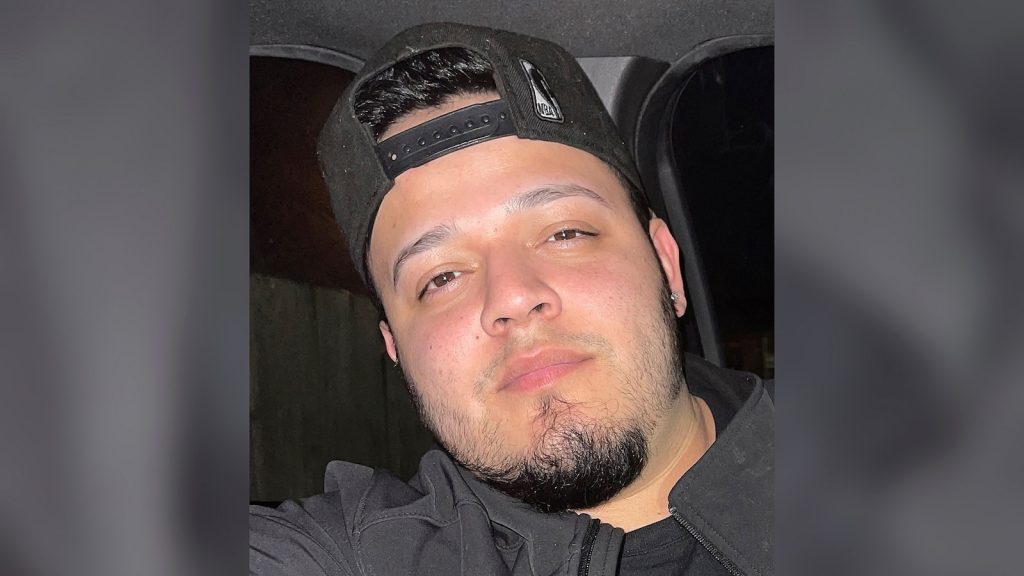In a scathing order, the U.S. Court of Appeals for the 4th Circuit on Thursday denied the Trump administration’s effort to appeal an order from a federal judge requiring it to facilitate the return of Kilmar Abrego Garcia.
The panel of judges said on Thursday that the government is “asserting a right to stash away residents of this country in foreign prisons without the semblance of due process.”
“It is difficult in some cases to get to the very heart of the matter, but in this case, it is not hard at all,” Judge James Wilkinson, who was appointed by President Ronald Reagan, said in the order. “The government is asserting a right to stash away residents of this country in foreign prisons without the semblance of due process that is the foundation of our constitutional order.”

Pam Bondi, Attorney General, and Secretary of State Marco Rubio sit nearby as President Donald Trump meets with President Nayib Bukele of El Salvador in the Oval Office of the White House, April 14, 2025 in Washington.
Win McNamee/Getty Images
“Further, it claims in essence that because it has rid itself of custody that there is nothing that can be done,” he added.
Abrego Garcia, who the Trump administration alleges is a member of the criminal gang MS-13, is being held in an El Salvador mega-prison after he was mistakenly deported there on March 15 despite being issued a 2019 court order barring his deportation to his home country due to the fear of persecution.
President Donald Trump, Attorney General Pam Bondi and other officials claim they cannot return him, despite a Supreme Court order last week that mandated the government facilitate his release.
Wilkinson wrote that the administration’s position is shocking, “not only to judges, but to the intuitive sense of liberty that Americans far removed from courthouses still hold dear.” The three judges agreed that Abrego Garcia is entitled to due process.
“The government asserts that Abrego Garcia is a terrorist and a member of MS-13. Perhaps, but perhaps not,” the judges said. “Regardless, he is still entitled to due process. If the government is confident of its position, it should be assured that position will prevail in proceedings to terminate the withholding of removal order.”
The administration did not immediately comment on the ruling.
The judges said that the order from the Supreme Court does not allow the government “to do essentially nothing.” The judges wrote that SCOUS order requires the government to “facilitate’ Abrego Garcia’s release from custody in El Salvador and to ensure that his case is handled as it would have been had he not been improperly sent to El Salvador.”
“Facilitation” does not permit the admittedly erroneous deportation of an individual to the one country’s prisons that the withholding order forbids and, further, to do so in disregard of a court order that the government not so subtly spurns,” the judges said.
The judges went on to say that if the executive branch claims it can deport without due process, what assurances will there be that it won’t deport American citizens “and then disclaim responsibility to bring them home.”
Pointing to the recent White House meeting with President Nayib Bukele and President Trump, the judges said that because both leaders disclaim authority and responsibility to return Abrego Garcia, the “result will be to leave matters generally and Abrego Garcia specifically in an interminable limbo without recourse to law of any sort.”
The three judges said that the Executive branch “may succeed for a time in weakening the courts, but over time history will script the tragic gap between what was and all that might have been, and law in time will sign its epitaph.”
“Now the branches come too close to grinding irrevocably against one another in a conflict that promises to diminish both,” the judges said. “This is a losing proposition all around. The Judiciary will lose much from the constant intimations of its illegitimacy, to which by dent of custom and detachment we can only sparingly reply. The Executive will lose much from a public perception of its lawlessness and all of its attendant contagions.”
“We yet cling to the hope that it is not naïve to believe our good brethren in the Executive Branch perceive the rule of law as vital to the American ethos,” the judges concluded. “This case presents their unique chance to vindicate that value and to summon the best that is within us while there is still time.”



